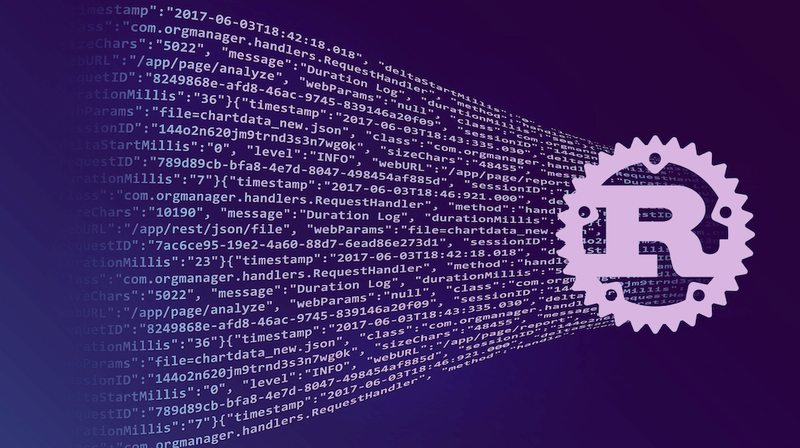The Amazing Power of Rust: Why is it one of the most loved programming languages?
With so many programming languages existing today, Rust has its own special space! But why? Here's why the world loves Rust.

Chemically, rust is Hydrated Iron (III) Oxide, also known as iron oxide (Fe²O³), as it is caused when iron reacts with oxygen and water - oxidising. In programming, Rust is one of the most loved languages.
It is a programming language focused on memory safety, protection, high performance during the processing of large amounts of data, concurrency and a highly efficient compiler. A true complete package, as if it was a new version of C and C++, because it precisely aims to be easy to learn and use. With an effective combination of static typing, it avoids errors at compile time, which brings more dynamic and flexibility.
Another advantage of this language is the fact that it has accessible documentation and a thriving community. This way it is possible to find very well evaluated resources to help anyone to learn (and love!) Rust!
Why is Rust so popular?
The main benefit of using Rust is the resolution of memory errors and concurrent programming. In Rust, there are two ways to write code: Safe Rust and Unsafe Rust. Safe Rust ensures that the code works correctly by forcing some additional restrictions on the programmer, while Unsafe Rust allows more freedom to the programmer by also allowing to have a code break - it unlocks options, but requires extreme care when checking code safety, so if you are not very security savvy, it is not advised.
- Borrow checker: is an essential feature of the Rust language and is one of the parts that make Rust so unique. It forces the developer to manage ownership, i.e. it is a very efficient feature that helps to eliminate memory violation bugs, so problems are detected at compile time and rubbish collection is not necessary.
- Solving problems with references that are no longer valid: Each reference has a lifetime where it is possible to define the scope for which it will be valid.
READ ALSO: Why is Rust the most loved programming language in the world?
Is Rust similar to C++?
The similarity between C++ and Rust is due to the fact that both are languages that support low-level code with great performance accessed directly from memory. But Rust being a newer language, both its syntax and design are more modern and simplified.
Memory management in Rust
The ownership system checks a set of rules to ensure that the ownership resources allow your program to run without compromising performance. This unique feature allows Rust to make memory safety guarantees without the need of a compile-time rubbish collector.
Property rules
Let's take a look at the ownership rules:
- Each value in Rust has a variable that is called an owner .
- There can only be one owner at a time.
- When the owner goes out of scope, the value will be discarded.
Is Rust a good language for Cyber Security?
Definitely thanks to its memory safety, Rust is a recommended language if you want to write software in a safe way. If you want to defend/attack low level components of a system (Memory, CPU, etc.) then it is highly recommended to use a low level language like Rust. With Rust, it is possible to achieve web based services (SQL injections, Cross-site Scripting, etc.), but it will not reach such high limits as higher level languages. When thinking of this way, we should point out that the recommendation to use high level languages during web attacks/defences is made because it has a higher speed and does not require rich control over memory allocation.
Is Rust easy to learn?
Rust demands a lot of effort in the learning process, it's not like ruby, python or JS that you can start to use and learn by practice, then putting something directly in production. If you come from a higher level language, low level details should be analysed and studied in depth to avoid negative experiences. Reading documentation, books and even watching free playlists on youtube can provide you with enough skills to create a successful project! Joining communities (like ours!) and talking to people who are either learning or are already familiar with it will also help to enrich your Rust journey.
Useful Resources
More from our blog
SQL for Beginners: A quick tutorial on how to use it
SQL stands for Structured Query Language. But how does it work? Here's what you need to know about this query language.
What do I need to become a cybersecurity professional?
The opportunities in the tech ecosystem are immense, from product management to back-end development. Check it out.
What are JSON Web Tokens (JWTs), and how do they work?
As cybersecurity experts search for new ways to increase privacy online, JWTs have become one of the most potent authentication tools.


